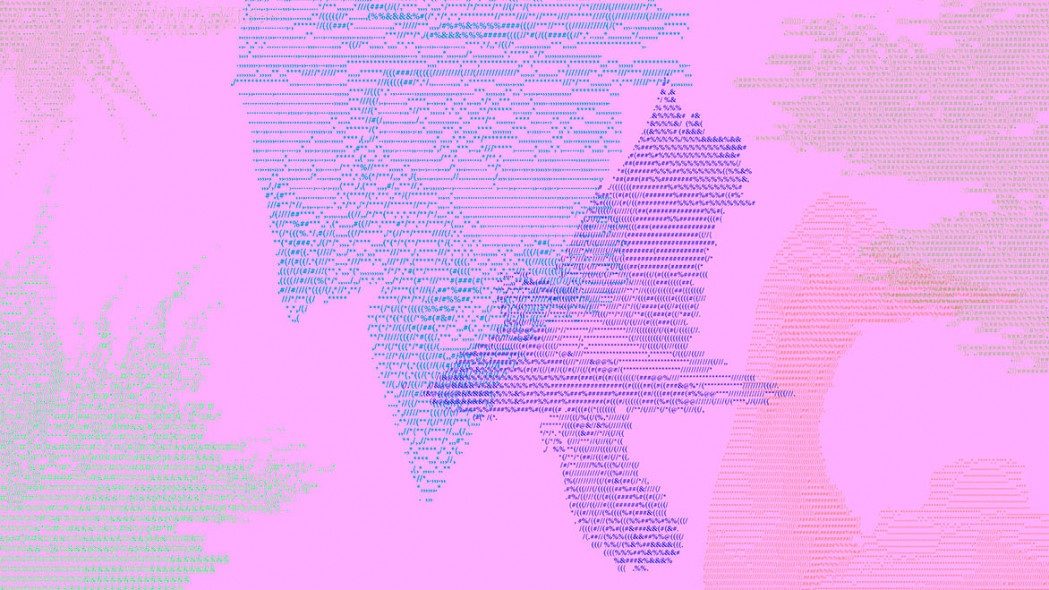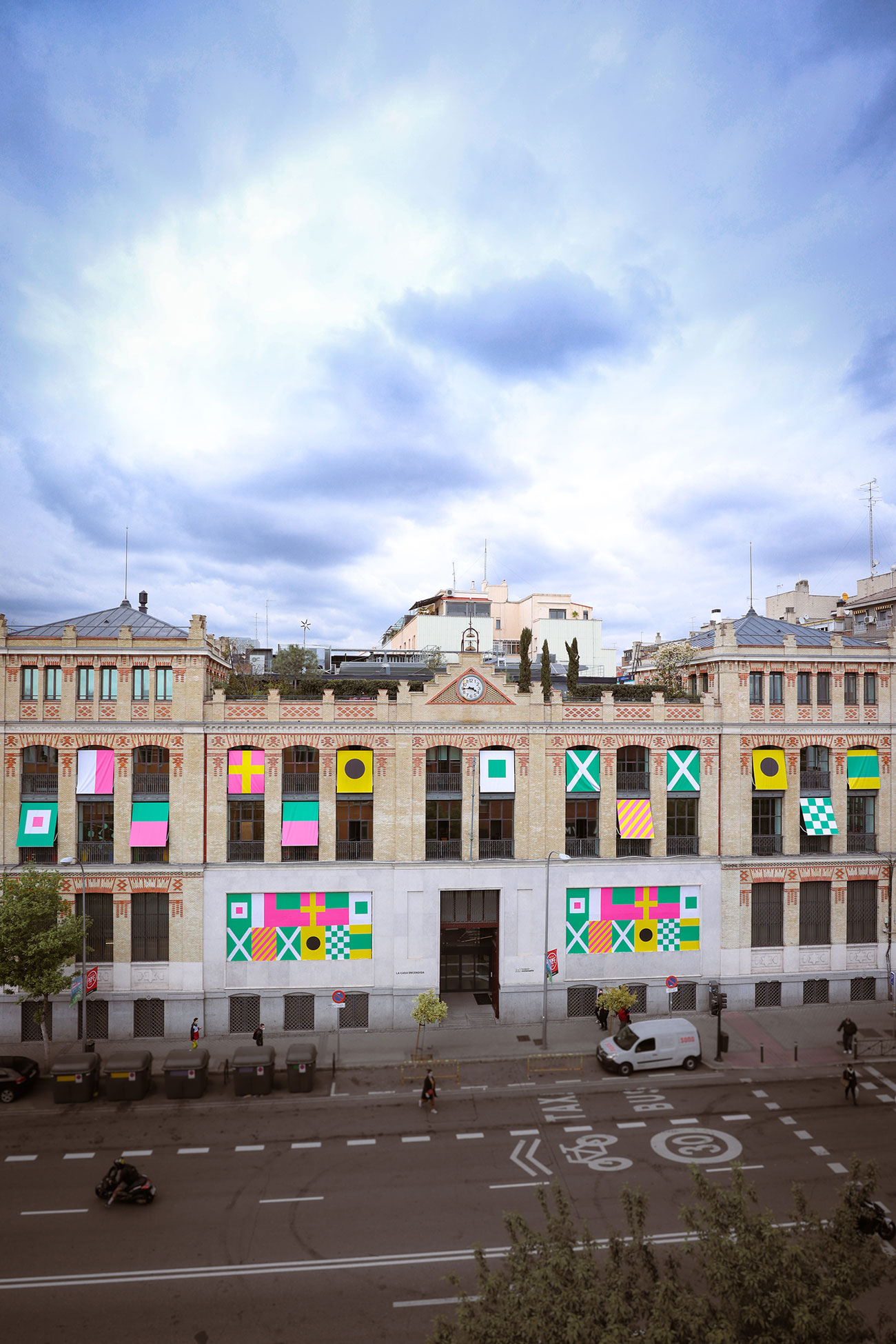Ecologies for Other Architectures

Emerging international architectural talents invite us to imagine other relationships with our environments by creating seven different scenarios in the Courtyard of La Casa Encendida through prisms such as the climate, soils, material transformation, work, the coexistence between different species, and technologies.
The Ecologies for Other Architectures series examines the proposals of seven international architecture studios chosen by New Generations, a project built around an international network of emerging architects who reflect on pressing issues of the present and future. To date, the project has involved more than 500 practices from more than 20 countries in the European Union. Over the course of a weekend, the Courtyard at La Casa Encendida will host a public exhibition of seven installations, models or maquettes that propose a more sympathetic approach to other communities (human and non-human), ecosystems and territories. The studios will present their projects in the Auditorium on Saturday 1 October from 6 to 9 pm. Ecologies for Other Architectures is curated by Gianpiero Venturini, founder of Itinerant Office and director of New Generations.
The Breathe Earth Collective from Austria will donate plants and seeds to visitors and ask the recipients to look after them for the next few years, the aim being to reflect on how simple actions like planting a tree can help to reduce the impact of pollution. The Belgian studio Aparicio/Eeraerts and the London-based practice Pareid Architecture reflect on the raw materials used to build everyday objects. The young Dutch duo Studio Wild addresses the issue of desertification in Spain through a weighing scale on which they balance objects found in desert areas of the country. The studio Takk, with offices in Madrid and Barcelona, builds a shelter for monk parakeets—a species considered to be invasive and therefore outlawed in many cities in Spain—to question the relationship between humans and non-humans. Lucía Tahan, a Spanish architect based in London, views technology as a new form of ecology and creates an immersive device that connects the real and virtual worlds. Lastly, the HPO Collective from Italy brings together all the previous proposals in a performative action that mixes images, music and sounds to encourage reflection on the responsible use of resources.
Participants:
Breathe Earth Collective: The Austrian collective presents its climate-culture concept to draw attention to our responsibility for caring for the plant species that surround us. During the course of the weekend they will donate plants and seeds to visitors and ask the recipients to them to look after them for the next few years. The aim is to convey the message to the participating audience how simple actions like planting a tree and then looking after it can help to reduce pollution and CO2.
Studio Wild: The Dutch group invites us to reflect on the abandonment of the central areas of Mediterranean countries, using a fragile sculpture of a weighing scale to highlight a delicate balance. Vast expanses of Spain are becoming part of a growing desert landscape that is rapidly being abandoned. Among other factors, this is the result of soil fertility decline, poor water management, large-scale erosion and the loss of biodiversity. Social and economic processes can only be restored through a complete overhaul of the system. Studio Wild imagines alternatives to the present dysfunctional system, analyses the weights that are missing and puts them on a weighing scale to recalibrate our ecosystem. The group translates its critical position to these ecological and political structures into an installation in which objects found in deserted areas of the Spanish countryside are balanced on a weighing scale. The installation aims to evoke an image of how certain interventions, however small they may seem, can impact our ecosystem.
Takk: The Spanish studio, with offices in Madrid and Barcelona, addresses the coexistence between animal and human species and the creation of human-induced ecosystems. The vehicle for the group's message is the monk parakeet, a species that was introduced in Spain as a pet in the 1980s and has gradually colonised public spaces in cities across the country, to the extent that it has become one of the most dangerous invasive species in Europe because of its destabilising impact on local ecosystems. The strategies adopted to reduce this plague in the city of Madrid (home to more than 12,000 monk parakeets) have sparked serious disagreements with the scientific community as well as with environmentalist groups, political parties and society in general. The different control mechanisms involve multiple agents and have triggered debates about ethics, economics and animal rights. The proposal for La Casa Encendida consists in creating a shelter for individual specimens of the monk parakeet. Based on its study of the materials, shapes and dimensions which these birds use to build their nests, the group will create a large interior space with different entry points and bathed in a warm light. An envelope of mud, twigs and straw will cover a lightweight structure of wooden strips and metal mesh catenaries to provide a safe space for the parakeets. The project opens the debate in the “Worlds to Build” forum to introduce new perspectives into this controversy which has normalised the discussion in Madrid society about relationships with non-humans.
Aparicio/Eeraerts: Soil Cycles (Pod) is the result of an art project carried out by the Belgian duo formed by Roberto Aparicio Ronda and Elise Eeraerts and invites us to reflect on the material transformation and changes that are occurring in our planet due to the raw materials used to build everyday objects. The installation narrates fragments of the science behind climate change, adopting a visual approach and a personal methodology that poses questions about the Anthropocene and ancient traditions related to the appropriation of the earth.
Pareid Architecture: This London-based practice presents a reflection on the concept of gaming, using an interactive game to raise public awareness about the responsible use of the materials employed to build cities. Material resources are being depleted while global trade networks and supply chains are being destabilised. Although individuals, collectives and government bodies have a general overall awareness of these fragilities, the extraction machine shows no signs of slowing.
Lucía Tahan: From her London base, this Spanish architect views technology as a new form of ecology and has created an immersive device that connects the real and virtual worlds. The metaverse has emerged as a three-dimensional evolution and embodied experience of the internet. In this new space, humans and non-humans will be able to teleport, interact and immerse themselves in digital environments, unrestricted by the laws of physics. According to Tahan, if the city of the 20th century could be interpreted as a system of ecologies, the 21st-century interpretation will have to include a virtual replica of the city. Likewise, if Banham viewed Los Angeles as a conglomerate of four urban ecosystems—beach, roads, plains and hills—the Los Angeles of the future will also contain their digital manifestation, including the digital content geolocalised in the city. Technology is another leg of the new ecology.
HPO Collective: The Italian practice brings together all the previous proposals in a performative action that mixes images, music and sounds to encourage reflection on the responsible use of resources. The aim is to record and provide a stage for the body of the young architect, as designer and artisan, to tell us how different emerging international practices are creating a new working class in the architecture sector.
Ecologies for Other Architectures combines research, creation and communication. The curator Gianpiero Venturini has selected the project participants and believes that the concept of ecology, understood as the field that studies the relationship between living organisms and their physical environment, has become increasingly complex. Based on this premise, seven emerging studios were invited to take part in a shared process of reflection and production to discuss the possible inflections of this idea with the audience.
Gianpiero Venturini. With a first degree and PhD in Architecture from the Polytechnic University of Milan and a master’s degree in Advanced Architectural Projects from the Madrid School of Architecture (ETSAM), since 2007 Gianpiero Venturini has worked in the Netherlands, Japan and Spain for offices such as FABRICations in Amsterdam and Kengo Kuma and Associates (KKAA) in Tokyo. He founded the New Generations architecture festival, is the author of several books and publications, and contributes to printed and online architecture magazines such as Abitare, Domus, Interni Magazine and urbanNext. His articles and research have been presented at conferences in Europe and other continents. He has lived in Madrid since 2011, when he founded his architecture studio Itinerant Office.
Visual identity: Itinerant Office team
With the support of: Foro Cultural de Austria en Madrid and Embajada del Reino de los Países Bajos en España
